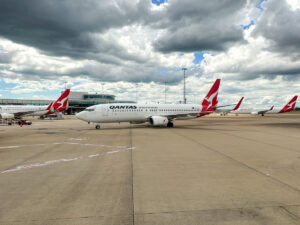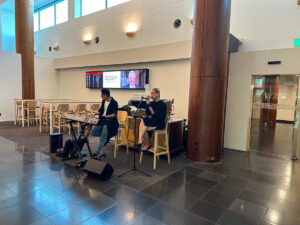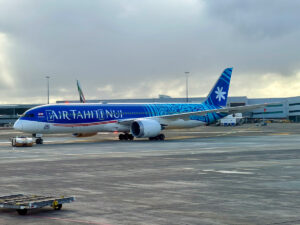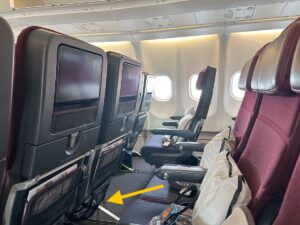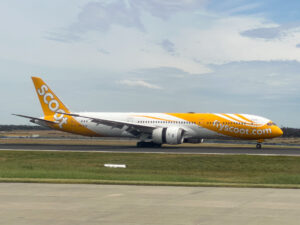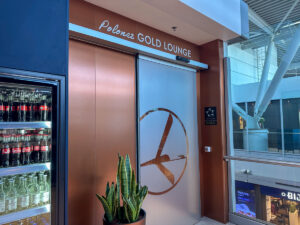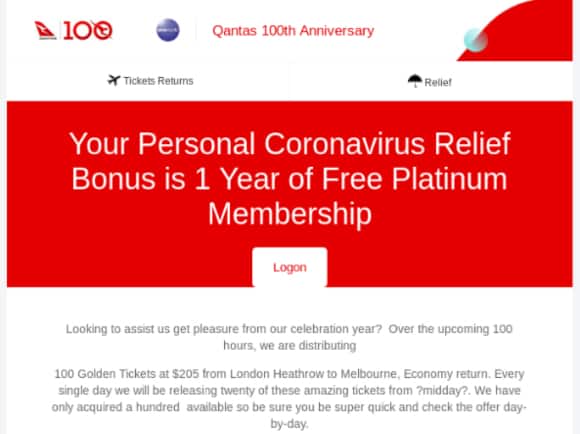
Fraudsters have been targeting Australians with phishing emails claiming to be from Qantas, warning recipients not to let their “Coronavirus Relief Bonus go to waste”.
There are various versions of the fake emails, which look somewhat genuine but have several telltale giveaways of a phishing scam.
In 2020, these emails had subject lines including “Your Personal Coronavirus Relief Bonus is 1 Free Flight to New Zealand” and “Qantas Anniversary Celebration Giveaway”. The scammers were back in January 2021, with a new fraudulent email announcing “Your Personal 2021 Gift”.
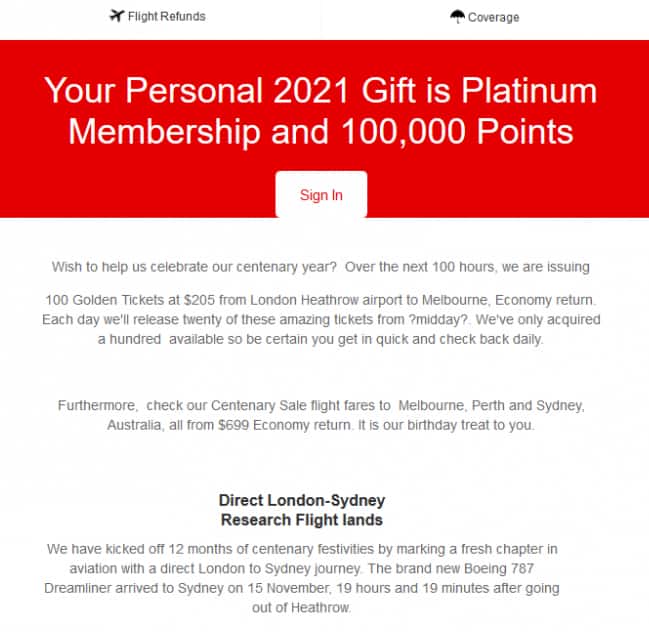
Qantas has indeed offered status “relief” due to coronavirus, with frequent flyers given automatic status extensions and Status Boosts. But these have been applied automatically – there is no need to register for any of these measures by clicking on a link in a dodgy email!
If you were to click on a link in one of the scam emails, you would be taken to a website where you’re asked to enter your Qantas Frequent Flyer number, surname and PIN. With this information, scammers may be able to log into your Qantas Frequent Flyer account. They could potentially access more of your personal information and even steal your points.
Qantas’ two-factor authentication system may at least help to protect your account if hackers did try to access it. Nonetheless, giving your frequent flyer number and PIN to a scammer certainly wouldn’t be a wise move. As we saw in a recent case, a hacker was able to access Tony Abbott’s passport details just by finding a photo of his baggage receipt on Instagram that contained the former Prime Minister’s Qantas booking reference number.
Although the email may look somewhat legitimate, there are several giveaway signs that this is a scam. The formatting is wrong, there are no personal details within the email, there are grammatical mistakes, and the email address that sent the email is not a genuine Qantas address. Not to mention, Qantas would never send this kind of email requesting your personal information anyway.
Qantas is aware of this and various other scams, which it provides information about on its website.
“We are aware some customers are receiving emails that appear to be from Qantas. These emails are not genuine and encourage customers to click on a link which requests personal frequent flyer information,” Qantas says.
“We advise recipients not to click on the link and not to provide any personal information in response.”
Sadly, this is just one of many current scams exploiting the COVID-19 crisis to target Australians.
Join the discussion on the Australian Frequent Flyer forum: Odd email (spam)
